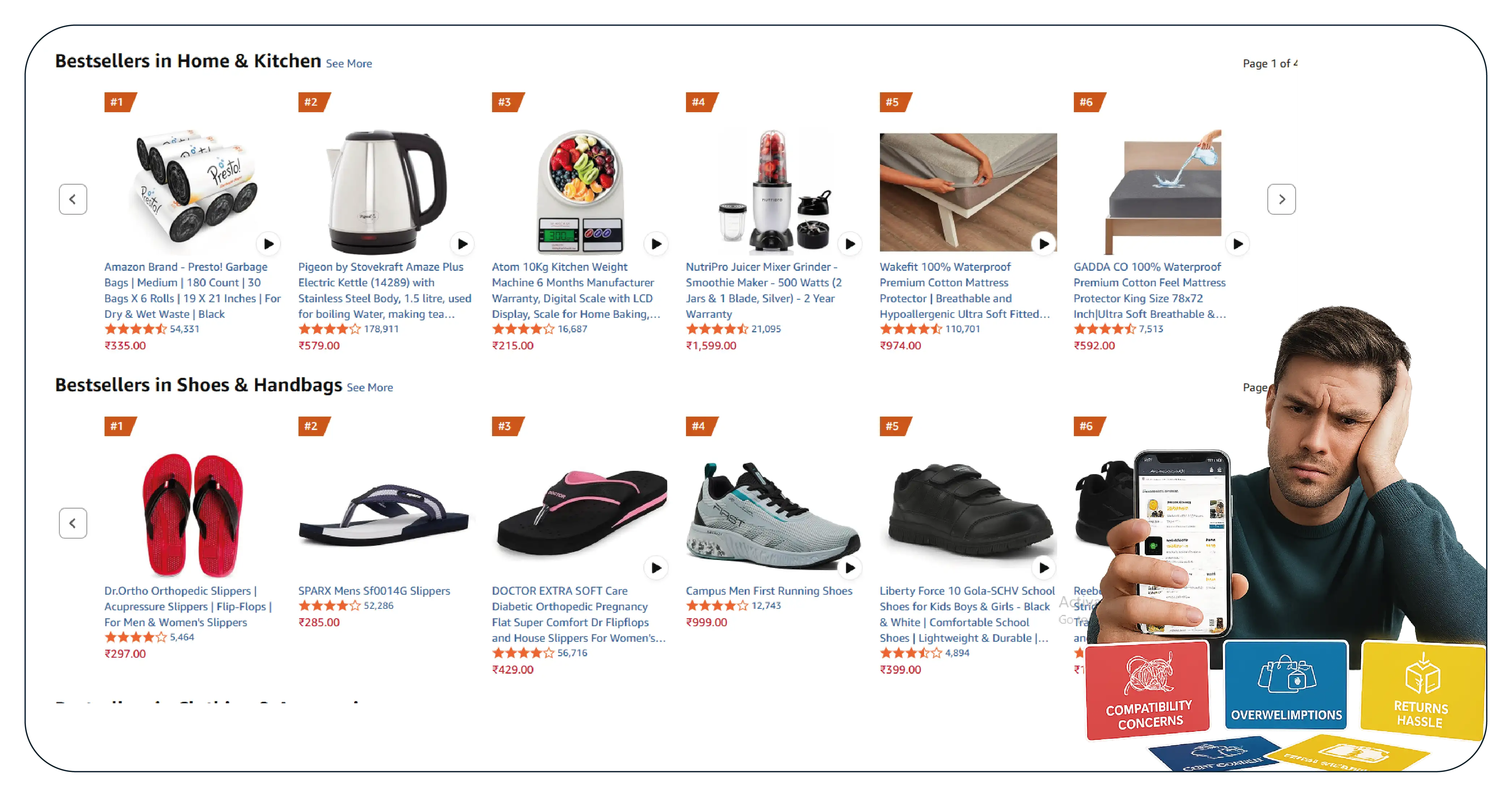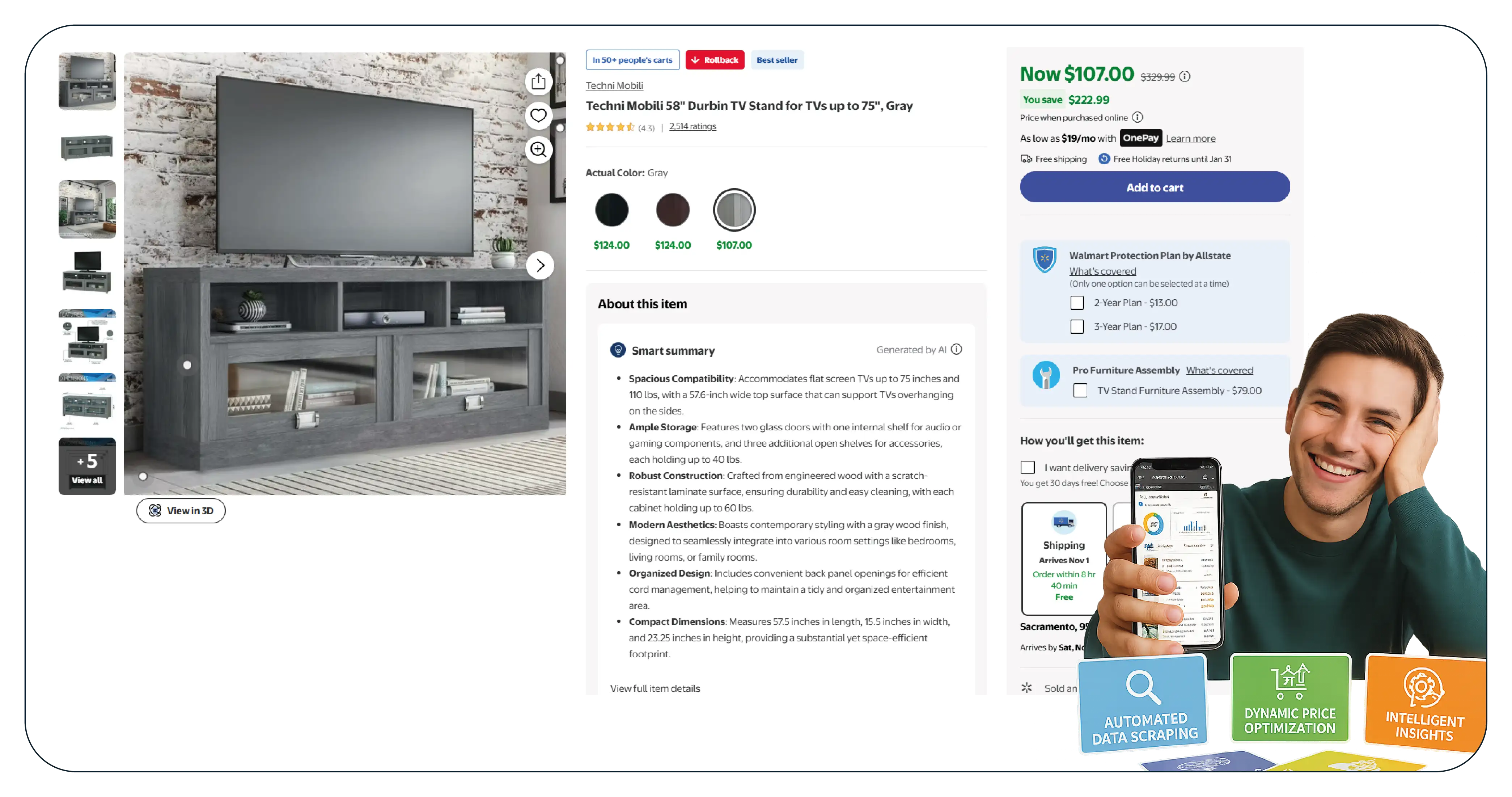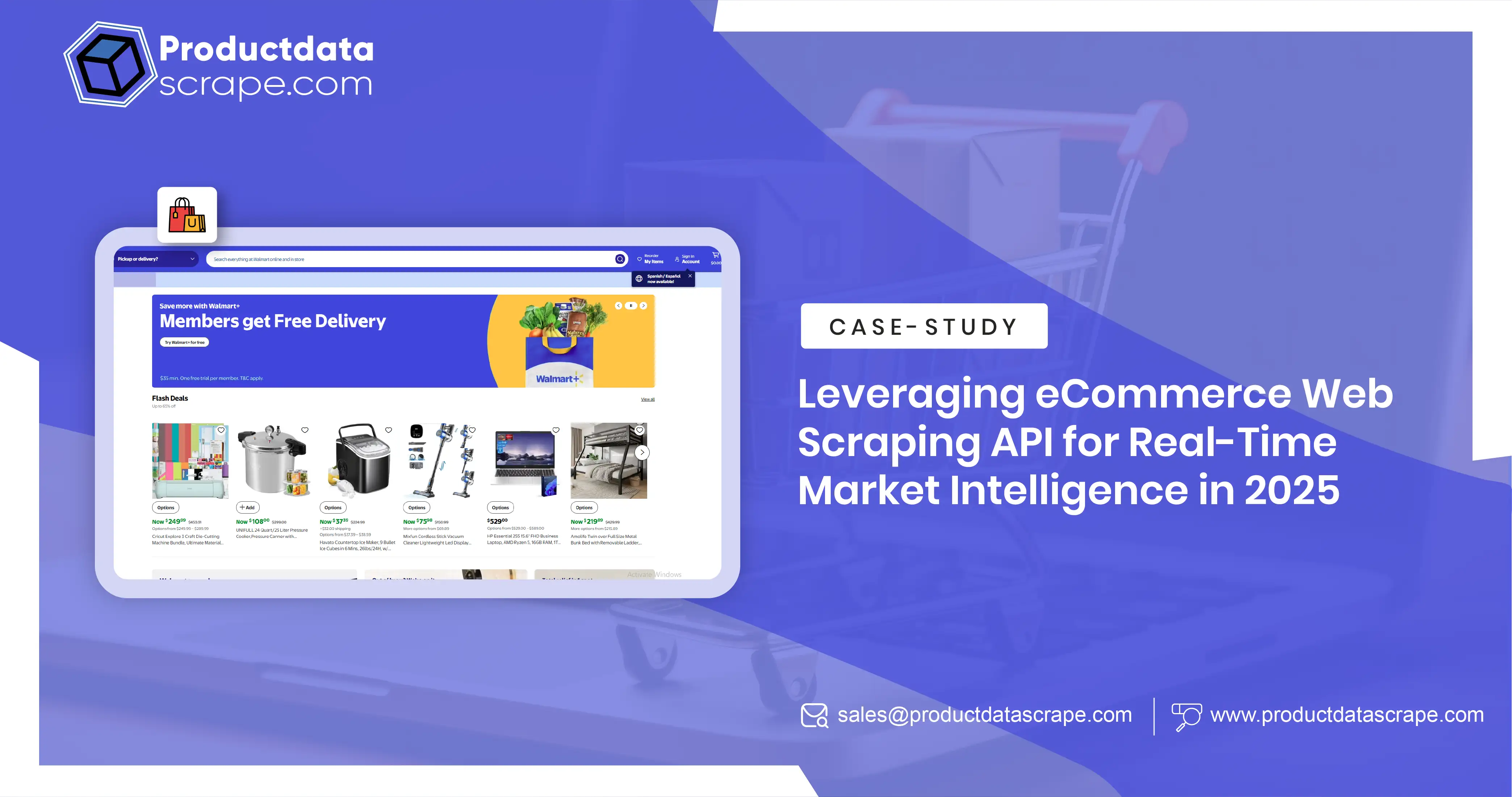Introduction
In the fast-paced world of online retail, timely and accurate product data is critical for
maintaining a competitive edge. Businesses need insights into pricing, stock availability, and
promotional strategies across multiple platforms to make data-driven decisions. This case study
explores how leveraging an eCommerce web scraping API helped a leading retail analytics firm
gather structured product data across major eCommerce marketplaces in real-time. By automating
data collection from Amazon, eBay, Walmart, Flipkart, and Best Buy, the company could monitor
competitor pricing trends, detect market shifts, and implement dynamic pricing strategies
effectively.
The adoption of an eCommerce web scraping API also enabled the firm to extract comprehensive
product catalogs, track inventory fluctuations, and optimize category-level pricing. Combined
with analytical dashboards, the solution provided actionable insights that directly impacted
revenue optimization, enhanced product assortment planning, and improved responsiveness to
market trends. This study highlights the implementation process and measurable results.
The Client
The client is a leading retail analytics company specializing in competitive pricing, market
trend analysis, and product assortment optimization. With operations spanning the United States,
Europe, and Asia, they support major brands in electronics, FMCG, and fashion. The client sought
a solution to monitor thousands of products across multiple marketplaces in real-time while
maintaining data accuracy and consistency. By implementing Extract Walmart API Product Data and
Extract eBay API Product Data, they were able to capture structured product listings, pricing,
stock levels, and promotional information efficiently. These automated data pipelines ensured
reliable, up-to-date insights, enabling faster and more informed decisions across multiple
product categories while reducing manual monitoring efforts significantly.
Prior to implementing the eCommerce web scraping API, the client relied on manual monitoring and
fragmented data sources, which resulted in delays, inaccuracies, and missed market
opportunities. Their objective was to adopt an automated, scalable, and reliable solution to
extract competitive pricing, promotions, and stock levels efficiently. By using structured APIs,
the client aimed to enhance forecasting, optimize product pricing strategies, and provide their
retail partners with actionable insights on dynamic marketplace conditions.
Key Challenges

One of the primary challenges was managing the volume and complexity of product data across
multiple eCommerce platforms. The client needed real-time access to product listings, prices,
and availability on Amazon, eBay, Walmart, Flipkart, and Best Buy. Manual tracking proved
time-consuming and prone to errors.
Another challenge was handling differences in product categorization, pricing formats, and API
structures across platforms. Amazon, eBay, and Walmart required distinct extraction methods to
capture product details accurately. Additionally, the client wanted to monitor competitor
promotions and dynamic pricing without triggering anti-scraping mechanisms.
Maintaining data integrity and ensuring that the eCommerce web scraping API could scale with
increasing product counts while respecting platform limits was another critical hurdle. Without
automation, pricing strategies risked lagging behind competitors.
The client also needed granular insights to support pricing intelligence, inventory monitoring,
and trend forecasting. Integrating disparate data sources into a unified analytical framework
demanded a robust, reliable solution capable of extracting structured product data consistently
across multiple channels.
Key Solutions

Product Data Scrape deployed a robust eCommerce web scraping API to automate the extraction of
product data across all major marketplaces. The solution captured product titles, SKUs, prices,
promotions, ratings, and stock status in real-time. Data pipelines were optimized for Amazon,
eBay, Walmart, Flipkart, and Best Buy, ensuring scalability and reliability.
For Amazon, the team implemented Extracting Amazon API Product Data to pull detailed product
listings, promotions, and inventory changes efficiently. Walmart data was captured scraping
Walmart API Product Data, while eBay listings were harvested with Extract eBay API Product Data.
Flipkart and Best Buy product data were integrated via Flipkart Product Data Scraping API and
Extract Best Buy API Product Data , allowing comprehensive cross-platform insights.
Additionally, the solution incorporated price monitoring API for Amazon, eBay, and Walmart to
track competitor pricing dynamically and detect discount patterns. The collected data was then
processed through Web Data Intelligence API pipelines to generate actionable analytics for
pricing adjustments, stock planning, and promotional targeting.
Product Data Scrape implemented Product Price Data Scraping Services to capture detailed product
information across multiple eCommerce platforms, ensuring that every listing, SKU, and price
point was accurately recorded in real-time. To help the client refine their pricing decisions,
the team also provided Product Pricing Strategies Service, which analyzed historical sales,
market trends, and competitor behavior to recommend optimized category-level pricing
adjustments.
Additionally, Pricing Intelligence Services offered actionable insights on competitor
promotions, seasonal trends, and discount patterns, allowing the client to respond proactively
and maintain a competitive edge. For seamless integration and automation across all data
pipelines, Web Scraping API Services were deployed, enabling continuous updates, error-free
extraction, and high reliability. Together, these solutions empowered the client to make
data-driven decisions efficiently, improve revenue performance, and streamline market
intelligence operations across multiple online marketplaces.
Client’s Testimonial
"Implementing Product Data Scrape’s eCommerce web scraping API transformed
how we monitor market trends. The real-time data from Amazon, Walmart, eBay, and other
marketplaces has significantly improved our pricing strategies and product assortment
decisions. The automation reduced manual work by 70% while providing actionable insights
that drive revenue. Product Data Scrape’s expertise and support ensured seamless integration
and reliable performance across all platforms. Their solution has become central to our
market intelligence operations, allowing us to react faster than competitors and make
data-driven decisions confidently."
—VP of Product Intelligence
Conclusion
By leveraging an eCommerce web scraping API, the client gained real-time visibility into
competitor pricing, product availability, and promotional campaigns across major online
marketplaces. The automated extraction and analytical pipeline reduced manual effort, increased
data accuracy, and enabled faster decision-making.
The integration of Extract Amazon API Product Data allowed the client to gather detailed product
listings, prices, promotions, and inventory status from Amazon in real-time, providing a solid
foundation for competitive analysis. Using Extract Walmart API Product Data, the client could
monitor pricing trends, stock availability, and promotional campaigns across Walmart’s extensive
catalog, ensuring timely adjustments to their own strategies. With Extract eBay API Product
Data, they captured dynamic marketplace listings, auction pricing, and seller activity, helping
identify opportunities and mitigate risks in a rapidly changing environment.
Additionally, Product Price Data Scraping Services from Product Data Scrape enabled the client
to extract structured pricing data consistently across all monitored platforms, feeding into
analytical dashboards. Their Pricing Intelligence Services provided actionable insights into
competitor pricing, discount patterns, and seasonal trends, empowering data-driven
decision-making.
Together, these solutions created a scalable, automated framework for real-time market
intelligence that can expand seamlessly to new marketplaces, improving revenue and optimizing
inventory management. This case study demonstrates how an eCommerce web scraping API is
essential for modern retailers seeking a data-driven edge in a highly competitive online
environment.



































.webp)






